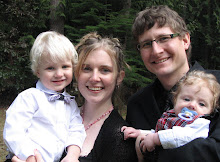Why Should God Care Less? part 6
This carries on from the post below:
Now, people who study ancient documents understand because they don’t have indices. If you go to your local scroll store, you want to pick up a copy of Genesis, right, um, it’s not like you open it up and there’s a table of contents. Maybe there’s a picture of Aaron, you know, a big cut-out holding a copy of Genesis there you know. ‘This is a wonderful book and everyone ought to buy it.’ Right, then on the back there’s kind of a few ... maybe Paul got in his tardus(?) and he wrote and kind of little kind of blurb saying buy this from Zondervan, or something. I’m sure they were there. [laughter] Ever try to flick through a scroll? It’s pretty hard to do. The ancients new that, so what they do at the outset is they tell you where they’re going. So you really do have to pay close attention to opening sentences. So you get ‘bar a sheet, el o him, ba ra’ [phonetic spelling only] ‘In the beginning, God created’ and then what do you get? ‘the heavens and the earth’ and ‘the earth was tohoo wavohoo [phonetic spelling only].’ Sounds like something you buy at one of those new age festivals. Honey and sugar and cream or something. Formless and empty. Now, they could have said a whole range of things. ‘And there was a Starbucks on every corner.’ There’s a whole range of things the writer could have said, but he chooses to say this. Pay attention to it. Take it seriously.
So, we’re going to do that and we’re going to look at the literary structure of Genesis. So, very quickly, day 1, what happens? God said ‘let there be light. And God separated the light from the darkness.’ Day 2, another separation – waters above, waters below. Day 3 the waters are gathered together; dry land appears. Now, what’s happening? That which was formless has been given form. Three days of giving form to that which was formless. And the earth was formless and empty – tohoo wavohoo. First three days you give form; what do you think is going to happen on the next three days? Just hazard a guess. [some in the audience answers ‘they’ll be filled’] Hey. Low and behold, that’s what happens. The realm of night and day, filled with rulers. What’s going to happen on the corresponding day 5? You’ve got waters above, waters below. What do you thinks going to happen? Birds and fish. What’s going to happen in the next one? On the land – humanity and animals. What’s going on? Three days formed. Three days filled.
Now, that is a highly architectonic literary structure. Anyone do humanities here? Anyone doing English Lit.? Couple of you. Strike. You’re in serious trouble reading the Bible folks. We have two or three people who know about literature. [there are some few hundred people in the audience]. And we’re going to try and read our Bibles. Oh boy. We’re in for real strife. Oh, that’s o.k., I love you all. You know what I’ve found that’s real interesting? When I talk about this stuff the English Lit. people go YEAH! And the engineers, the mathematicians and often the systematic theologians are busy running out lighting fires. [laughter] The Bible’s literature! It’s really important to have some skills in that bible reading. Now, again, I don’t know anywhere in the Bible, and I’m pretty familiar with parts of it, I don’t know anywhere in the Bible where you find this kind of literary structure in a straight forward historical account. You just don’t find it. Now, that’s not to say it’s not true. It’s absolutely true. But maybe the truth is more like the fact that tigers, Blake’s tigers, read that little couplet, you’ll learn more about the essence of tigers from that couplet than you will from a 500 volume DNA map. You read it right, it’s very powerful. I want to suggest that that’s what’s going on here in Genesis as well. And then finally on the seventh day God rests. Notice there’s no evening and morning to the seventh day. That should give people pause. Something else is going on here. Let Genesis 1 speak to us as it wants to.
There’s some other things we can say too. It’s a little bit clearer in the Hebrew. I do apologize for mentioning that language but it was written in Hebrew, so, there you go. The corresponding days 1 and 3 have one creative act. The next two days have one creative act of two parts; they’re becoming increasingly complex. And then the final days, 3 and 6, have two separate creative acts. Notice that? Increasing complexity as you move through both form and formless and notice the direction: the focus is from heaven to earth. EXACTLY what you find in the book of Revelation. The emphasis in Genesis is the focus upon the earth.

































































































































































































I am assuming you meant Tardis at the beginning there, it's from Dr Who.
ReplyDeletehttp://en.wikipedia.org/wiki/TARDIS